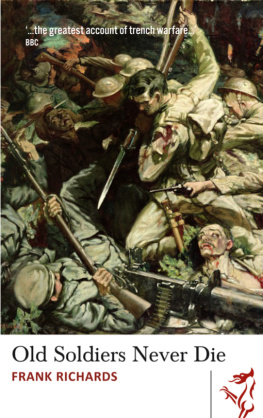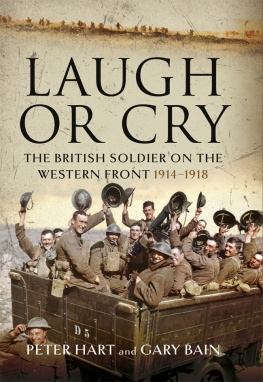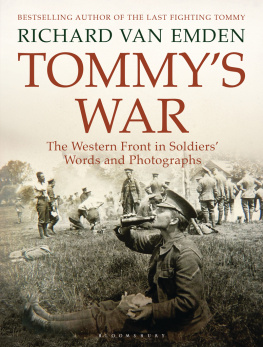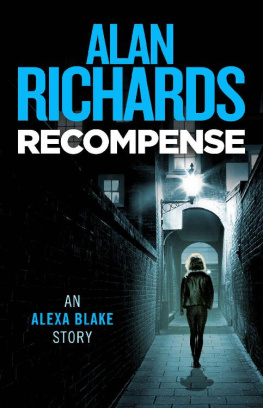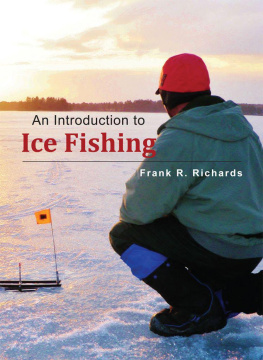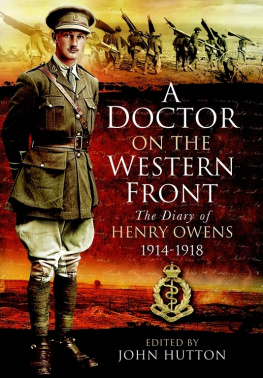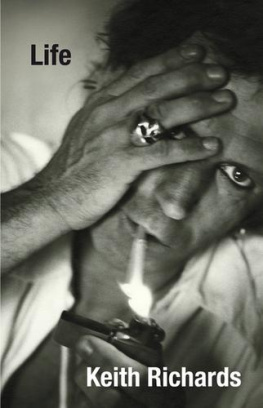Frank Richards was born in 1883 in Monmouthshire. Orphaned at nine years old, he was brought up by his aunt and uncle in the industrial Blaina area, and went on to work as a coal miner throughout the 1890s before joining the Royal Welch Fusiliers in 1901. A veteran soldier who served in British India and many areas of the Western Front, he wrote his seminal account of the Great War from the standpoint of the common soldier, Old Soldiers Never Die , in 1933. This was followed by Old Soldier Sahib , a memoir of his time serving in British India, in 1936. He died in 1961.
OLD SOLDIERS NEVER DIE
Private
FRANK RICHARDS
D.C.M., M.M.
Late Of The Second Battalion, Royal Welch Fusiliers
LIBRARY OF WALES

CHAPTER VIII
LAVENTIE, GIVENCHY, CUINCHY
About June we commenced to go on leave. At this time men were only granted five days leave one day to go, three at home, and one day to return and they had to take their one hundred and fifty rounds of ammunition with them. At 4 p.m. one afternoon I left the front-line trench and at 6 p.m. the following evening I was in Newport, Mon., which was about nineteen miles from my home. There were no rest camps at Boulogne or other ports at this time: they came into being a little later. Just before I went on leave the Battalion had their trousers cut short and every man had to have his hair closely cropped, which was a good idea especially when a man received a shrapnel wound in the head. My friends were delighted to see me but were disappointed because I hadnt brought a few German helmets. When I told them what use I had made of a couple of them they laughed and put it down to an old soldiers yarn. Those three days I did nothing but booze; if I called in a pub everybody wanted me to have one. There were no restrictions on public houses.
Returning from leave, Victoria Station was open to the public: they were all old regular soldiers returning to France and there were little groups here and there dancing and singing with their relatives and friends, the majority a little top-heavy and to the onlookers as happy as birds. I wonder how many of them saw Victoria Station again. On my remaining leaves the public were not allowed on the platforms where the leave trains were coming in or returning back: they had to stay outside a barrier erected on the platform. There were always the ladies soliciting outside and I expect many young soldiers who went with them wished afterwards that they had been blown to pieces in France. I was never foolish enough to go with one of those birds, not because I was different to some but because I was afraid of the consequences. When a man is between twenty and thirty nature rules his brain, but between thirty-five and forty-five brains should rule nature. I wasnt a young soldier any longer, so I was a bit careful. I left my home at 9 a.m. in the morning and was back with the Battalion at 8 a.m. the following morning. Some time later leave was increased to seven or eight days and men might be detained for days in the rest camps at the ports, both going and returning. Also the carrying of ammunition was abolished and any man caught with a round on him was sent back to his battalion and was supposed to forfeit his leave.
About July we left the Bois Grenier sector and relieved a Territorial battalion in the trenches in front of Laventie. They informed us that they had arrived in France in March and had been on this part of the Front for the last few months. We noticed that the trenches were in a very bad state, in some places being only breast-high and the parapet and traverses were crumbling to pieces, and very little barbed wire had been erected in front; there were stacks of barbed wire and sandbags on the back of the trench which had not been used. We asked them why they hadnt made their parapet higher so that in the day they could walk upright instead of having to crawl about in their two doubles. They replied that it wasnt safe to work out on the parapet or out in front during the night, as the enemy were continually firing and sometimes a machine-gun would open out. If Buffalo Bill had been with us he would have shot the lot of them at sight. I never saw a more windy crowd, and before they had filed out of the trench the majority of us were up on the parapet working and cursing flashes. One of their officers ordered us to keep quiet until they had left the trench: we replied by making more noise and the Old Soldier told him to put a sock in it and clear out with his men as they only made good soldiers weep. If the Germans had made a raid on them they would have had a beanfeast.
Our Brigade was sent to that sector simply to rebuild the trenches: it was a quiet place and we had very few casualties during the time we were there. In one part of the line the ground dipped in the rear of us and we could walk through a little trench and out into the open. One afternoon we were filling sandbags on this spot and some of the men who were digging discovered a large chest and some smaller ones. The smaller ones contained glass and crockery and household stuff, and one was full of ladies clothes, but no jewellery. The large chest was the most useful to us: it was full of bottles of wine including some champagne well packed with straw. They had been probably buried by the owner of a ruined cafe which was close by. At stand-to that evening most of the men who had been filling sandbags were three sheets in the wind and one man had drunk so much that he fell insensible off the fire-step and had to be carried down to the Aid Post on a stretcher. The Old Soldier remarked that every man in a frontline trench should be carried out in the same condition. The man was sentenced to five years imprisonment, but had the sentence washed out a few months later.
During the time we were there I was warned to go back on the signallers. I had been a signaller during my pre-War soldiering and had been asked to go back on the job several times by the signalling sergeant, but had refused. Now I was warned and had no option in the matter. There were at this time eighteen signallers to a battalion, with a sergeant in charge; in the front line there were generally three signallers in each company and the remainder in Battalion Headquarters, but sometimes four were posted to a company. Signallers were also runners; in the Royal Welch there were no Battalion runners except signallers until July 1916. Signallers had to do no trench work or patrols and were the only men in the trench that were exempt from stand-to.
When going in the line we were not always posted to our own companies, and although I belonged to A, I would sometimes be in the line with B, C, or D, or Battalion Headquarters. Each station had its D3 telephone, which was a small portable instrument which could be used for speaking or sending Morse. We sent all our messages in Morse, which was quicker and more accurate than speaking them. In standing trenches our telephone lines generally ran down the communication trench from Battalion Headquarters to the front-line companies and then along the front-line trench. All companies and Battalion Headquarters were linked up. A signaller could wander around the front line and no questions were asked. In sectors where there was plenty of straffing the lines would often get broken and many a good signaller went West in the act of repairing a broken wire. Signallers also got to know when something important was coming off, in many instances before the company commanders did. When we were out of the line we formed a unit on our own and were billeted together. A signallers life on the whole was far more pleasant than a rifle-and-bayonet mans.
We had a young officer named Mr Graves join the Battalion at this time and he was posted to the Company. He was soon highly respected. He and a sergeant went out on patrol his first night in the trenches with us and brought back a large round bottle in a basket which they had found in an unoccupied German listening post. All sorts of yarns were going round regarding the contents of the bottle which had some chemical liquid in it, supposed to be used for damping German gas-respirators, but we never heard for sure what it was.
Next page
